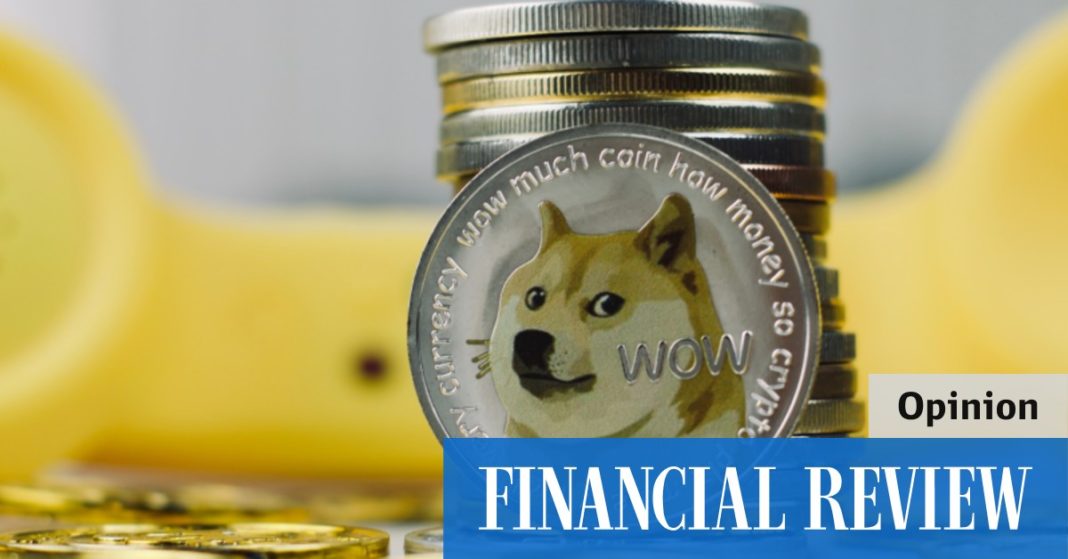By coming together and setting up a single-purpose trust structure as the entity underwriting the deal, the investment banks can get around allegations that they’re involved in collusion.
This market response, of course, makes it even harder for the ACCC and the CDPP to justify continuing with their case.
But the fiasco surrounding ANZ’s $2.5 billion capital raising highlights an important question about the quality of the information flow to the market.
‘Disturbing’ silence
As Clime Asset Management’s chairman, John Abernethy, pointed out in an article published on the fund manager’s website in August 2015, there was a deafening market silence regarding the large shortfall on the $2.5 billion placement.
At the time, Abernethy penned an article speculating that there had been a shortfall, and the investment banks underwriting the deal had been left “holding some of the can”.
In an article published three years later, Abernethy argued that this silence was disturbing.
“We would suggest that the institutional or sophisticated market for Australian equities knew very quickly after the ANZ placement that there was a shortfall and therefore a possible overhang,” he wrote.
“The market for ANZ shares immediately traded below the placement price.”
But, he added, this raises question of why major banking analysts were silent on the obvious shortfall in the ANZ placement.
“How could any banking analyst who has any understanding of the market not warn their clients and readers that there was a probable overhang of ANZ stock that will affect its market price until cleared?”
Abernethy argued that there was probably a range of buyers for the ANZ shares, including index funds, active long-only funds, active long-short funds, international funds and highly geared and hyperactive hedged funds.
Hedge funds, he noted, are the biggest source of brokerage for stockbrokers, particularly those owned by investment banks. “They are huge generators of broking commissions because they are big traders, and they reward the delivery of good ideas and stock placements,” he wrote. “Hyperactive hedge funds are given access to all deals and are well looked after.”
It appears that younger investors are keen to play in markets where they believe system is less rigged against them.
In the case of the ANZ placement, he argued, it’s possible that hedge funds bid aggressively, which might explain the dearth of commentary on the overhang of ANZ stock.
“It seems to us that the information wasn’t made public because the major market players, commission agents and trading funds needed to protect each other from losses.”
This, of course, resulted in a big asymmetry in the market between the sophisticated professional players and the rest.
As Abernethy noted, “there is a swag of advisers and retail investors who – through lack of knowledge and experience – may have had no idea that an overhang existed in the market.
“Indeed, it was not only the shortfall held by underwriters, but the shares held by wrong-footed traders that would depress the ANZ price for months.”
ACCC focus on the wrong issue
But this raises a serious issue for Australian regulators as to how well-informed the market really is.
As Abernethy wrote: “The stock market has been gamed in so many ways, and the ACCC has chosen to focus on a part that is not the real problem. The most blatant rigging is in information flow.”
It is likely the widespread perception that stock markets are rigged in favour of well-placed Baby Boomers at least partly explains the huge interest that Millennials and Gen Z-ers are showing in alternative assets, particularly the 8800 cryptocurrencies now on offer.
As an asset class, cryptocurrency boasts a staggering market value of almost $US3 trillion ($4 trillion), or roughly the equivalent of a quarter of the world’s mined gold.
It appears that younger investors are keen to play in markets where they believe system is less rigged against them, and where they’re not dependent on analysts or advisers to decipher the market.
Eye-watering returns
Indeed, in these asset classes digital natives have an advantage over traditional investors because they’re able to profit from their ability to pick chat room trends quickly.
They’re able to monitor chat rooms and detect when particular cryptocurrencies – or meme stocks – are generating lots of mentions.
And the returns from these non-traditional assets have been eye-watering.
During the meme stock mania in January –where retail investors targeted stocks with high interest from short sellers, hoping to punish the hedge funds who had laid large bets that the company’s share price would fall – professional investors lost billions of dollars as the share prices of companies such as GameStop, AMC Entertainment and BlackBerry soared.
Rather than relying on analysts, young, newbie investors used platforms such as Reddit, Discord, Facebook and Twitter to exchange information, boast about their gains, and even organise concerted action to intensify the losses suffered by professional traders.
Hedge funds, in turn, complained that social media hordes were conspiring to manipulate markets.
The run-up in cryptocurrency values has been even more dazzling.
Dogecoin, a dog-themed cryptocurrency that started out as a parody less than a decade ago is now valued at $US34.4 billion.
Its market value was briefly eclipsed by the Shiba Inu coin, another dog-themed joke currency that reached $40 billion last week before it tumbled 20 per cent on Thursday. Shiba Inu’s price has since recovered, giving it a market value of $US34.5 billion.
Of course, not all cryptocurrencies are winners. Last week, the value of a Squid coin – a once red-hot cryptocurrency named after the Netflix hit series Squid Game – collapsed from a high of just over $US2860 to effectively zero in an apparent swindle.
Despite the danger and the volatility, however, younger investors prefer to take their chances with these cultish assets, rather than confine themselves to traditional markets, which they believe are rigged against them.






